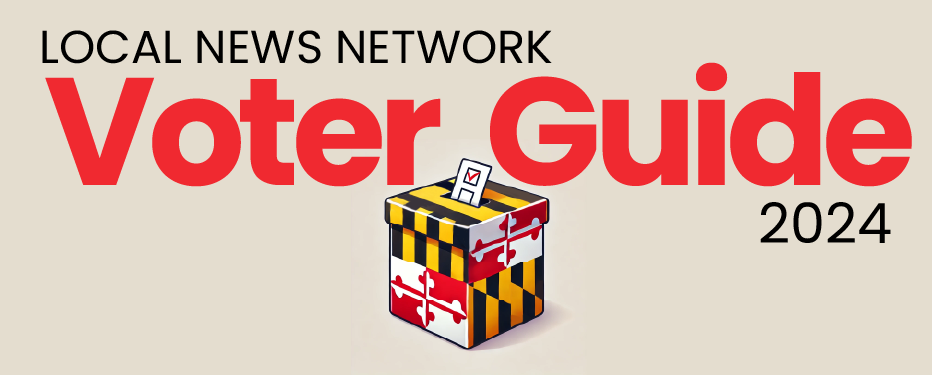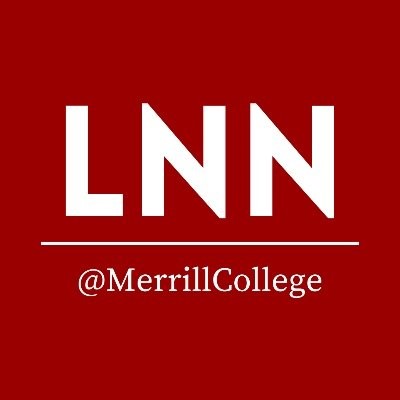Ann O'Connor
Running for school board in Talbot County District 2
How old will you be on Election Day (Nov. 5)?
55
Are you currently employed? If so, where, and what is your job title?
Substitute teacher, mother of six.
What is the highest level of education that you completed, and where did you get that degree?
Master’s degree in Spanish, Middlebury College; bachelor’s degree, Syracuse University.
Why are you running for the school board?
I am passionate about students and education. I love our public school system and the diversity of people, and I want to see all aspects of our educational system rise to be the best we can. I have talked to many teachers about practices that work and practices that don’t work. I look forward to working with teachers, the community and the students to make Talbot County a place where people are proud of their public school system.
What makes you a good candidate for the board?
I am a former teacher, having taught in private, public and at the collegiate levels. Most recently, I ran a baby bilingual program here in Talbot County, where I went into three different preschools to teach Spanish. I have the background in education. I will prioritize what teachers need in order to give their students the best product they can. I’ve also been involved in the school system here for the past 16 years. My husband and I have six children, all of whom have gone through, and are currently still going through, Talbot County Public Schools.
What is the most important issue facing your school board and what would you do about it if elected?
The most important issues right now, I would say, would be academics and discipline. I will highlight my platform, which is the ABCs of education. They are: Advancing Academics, Boosting Accountability and Cultivating Character. As far as academics go, I would help to make decisions where our teachers have the necessary resources and tools they need to reach every student. I would also make decisions where our teachers have the behavioral support they need in order to teach and where students can learn. I would work to foster an environment where there are fewer interruptions in regard to behavior by proposing specific rules and guidelines to be followed and consequences and follow through when those expectations are not met.
Good character doesn’t just happen. It is not innate. It is formed day by day by what we think and what we do, and is cultivated through daily choices and actions. I would prioritize intentional activities, such as community service projects, peer mentoring, and discussions on ethical dilemmas that would encourage students to reflect on their own values and behaviors.
Please name a public leader you admire and explain why.
Ben Carson and his mother.
I love stories where the underdog comes out on top. I revel in how they are able to overcome their circumstances and turn their challenges into stepping stones to forge ahead. Ben Carson is a man who came from a childhood marked by poverty and adversity. There was seemingly no way out of this cycle for him, his mother and brother. It was his mother who didn’t back down and continued to push her children to the extent she knew they were capable. She illustrated resilience and determination in herself and passed that on to her son, Ben. She held her sons accountable to not just the bare minimum. After years of trials, failures and successes, Ben overcame and became a renowned neurosurgeon, achieving significant medical advancements and pioneering surgeries that saved lives.
He didn’t stop at his medical career. He wanted to give back in other ways, which is why I admire him.
*He went into public service and served as secretary of Housing and Urban Development and showed a commitment to addressing issues such as affordable housing and urban development.
*He has consistently emphasized the importance of education and has supported initiatives to improve educational opportunities, especially for the underprivileged.
*He encourages a message of personal responsibility and community involvement.
These character traits are ones that I hold in high esteem and aim to imitate.
The Blueprint for Maryland’s Future, passed by the General Assembly in 2021, is a 10-year plan that includes increased education funding to support early childhood education, increased teacher starting pay, college/career-readiness standards for high school graduates, and expanded services to multilingual and impoverished families, among other goals. Please tell us your views on the Blueprint and how it will affect your school district.
My view on the Blueprint is great if we can fund everything in it. Let’s get real, however. From where is this funding coming? If the money were in the budget, wouldn’t we have already given our teachers the raises that they so desperately need and deserve now? Why wait? This initiative has changed its name four times in the past two decades. First it was the Thornton Commission, then became the Bridge to Excellence, (which sounds great!), then the Kirwan Commission and now, it’s the Maryland Blueprint. Maybe by changing the name it will become more successful?
I don’t believe that education gurus and bureaucratic experts getting together to create a top-down program would make our local schools better. This removes the schools from the control of locally elected school boards and puts control into the hands of unelected bureaucrats.
Also, since this Blueprint is mandated by the state of Maryland, it doesn’t matter what my view is on it, it will have to be implemented whether or not we have the appropriated funds. This puts added stress on the county and ultimately will make us cut programs that are specific for our county in order to fund what the Blueprint tells us we have to fund.
Some school districts nationwide are placing new limits on the use of cellphones in middle and high schools. What do you think should be the policy on student use of cellphones in your district, and why do you support that policy?
This is a great question. I have talked to a number of teachers about cellphone use in school, and they unanimously tell me the same thing: Ban them. We at least need to adopt a cellphone policy for the county.
I would propose that they be banned in elementary-middle school and to carry only in pouches in ninth -12th grade, which can be ripped open in case of emergency. Why? Decrease anxiety and depression. Decrease classroom distraction with bullying online, drama and games. Increase engagement in work and student-to-student interaction. If Talbot County wants to lead the way on protecting our kids from short attention spans and gaps in core knowledge, this is the number one thing that needs to happen.
Are you satisfied with your school district's efforts to ensure the safety of its students? What, if anything, should be done to improve school safety in your district?
The safety of our students is indeed a big concern for all. I believe there is a multifaceted approach here, and this is where I speak again on my platform of going Back to Basics, the ABC’s of education: Advancing Academics, Boosting Accountability and Cultivating Character. Student discipline in school plays a crucial role in enhancing safety for children both in and out of the school environment. When schools implement clear behavioral expectations and consistent disciplinary measures, it fosters a sense of order and respect among students. The structured atmosphere not only reduces incidences of bullying and violence on school property, but also instills important values that students carry into their daily lives. As children learn to navigate social interactions positively, their improved behavior extends beyond school walls, leading to safer interactions in their communities. Ultimately, a well disciplined school environment promotes a culture of accountability and respect that benefits students everywhere .
As a county we have to adopt policies in which students know the specific rules and where they know the consequences dealt if these rules are broken. It’s just like parenting. If there is a rule, there must be follow-through, and it must be consistent. When there’s no follow-through and no consistency, things are out of control. The key word here is consistency. We need to be consistent across-the-board.
Do you think there are circumstances when books should be removed from school libraries? If so, what kind of books should be removed, and who should make those decisions?
Great question. This would fall under the A of my ABC’s of education, Advancing Academics. The role of books in a school system should be to enhance the learning of the subjects taught in the school. If there are such books that are not enhancing subjects taught in school, I don’t think they need to be in there.
Answering a little bit more specifically, when considering the removal of books from school libraries, I believe books that contain graphic content, hate speech, extreme violence, explicit sexual content, perpetuate misinformation or promote discrimination should not be in our schools. If need be, decisions about which books to remove should be a collaborative process including input from the teachers, librarians, school board and parents.
Some school districts enact policies allowing transgender and gender nonconforming students to use their preferred pronouns while at the same time not informing those students' parents about that decision. What is your opinion of such policies?
I feel like this is a dangerous road to go down. If we are not informing parents of students’ decisions about their preferred pronouns and maybe questions about their identity, of what other aspects of their school life are we not informing parents? Is it OK not to inform parents of their student failing a class? When is it OK for the school to withhold information regarding their child and decisions affecting their child’s identity and well-being? This may lead to distrust of what else the school is keeping from parents and does not foster transparency and open communication. I believe parents have the absolute right to know what is going on with their child socially, emotionally and academically. I believe it is absolutely essential to maintain open dialogue among schools, parents and students to foster understanding and support.


